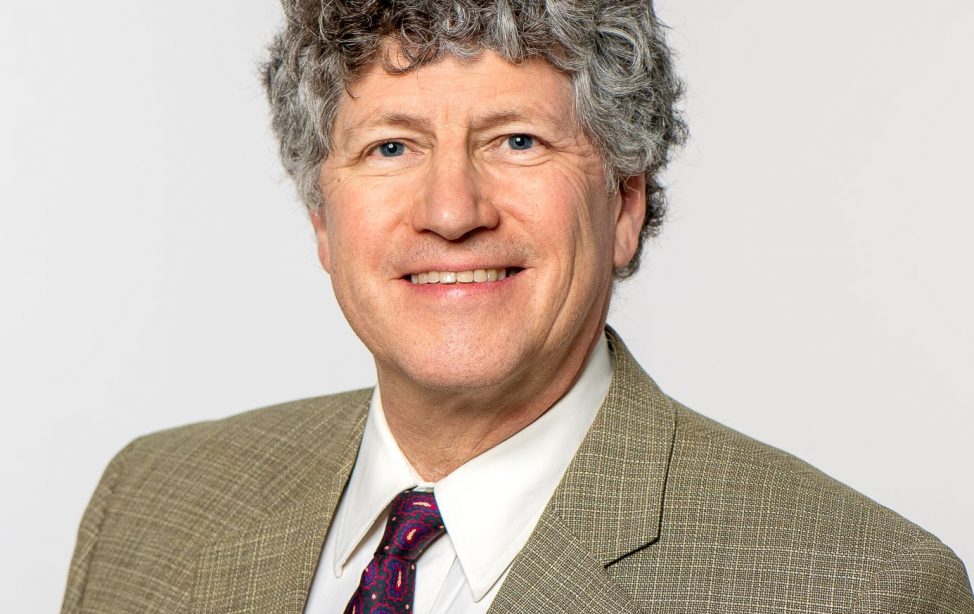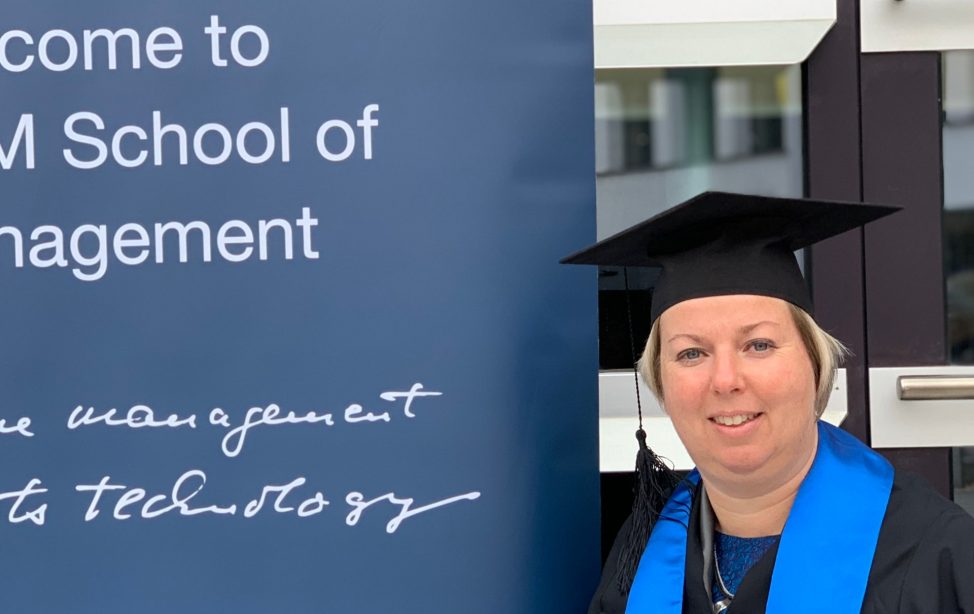
Cornelia Höß was the third female medical superintendent of a gynaecological department in Bavaria: for years she has been sharing her experience in the TUM Mentoring Programme for Students by Alumni with joy and commitment (Image: Magdalena Jooß).
Having learnt from the best
Before and during her dissertation Cornelia Höß worked for the Institute for Experimental Surgery at Klinikum rechts der Isar and was involved in numerous interesting projects such as microvascular prosthetics, small bowel transplantation and heart valve replacement in rats. “The technique was easy for me and corresponded to my wishes, and I trained the in-house replantation team surgeons”, the committed doctor remembers. Because she worked on fallopian tube surgery on rabbits in her dissertation, she was offered the job to establish micro-surgery in the department for gynaecology and obstetrics even before her practical year had started.
I don’t like authoritarian behaviour.
A pioneer in gynaecology
However, gynaecological surgery was in the process of change at that point in time and Cornelia Höß was in the lucky position to do postgraduate studies in London with Professor Robert Winston, one of the fathers of gynaecological micro-surgery. Later on she chose to emphasise on gynaecological oncology and to stay in this area. “I also felt that I was able to speak with suffering patients eye-to-eye because I was used to taking care of my sisters since I was little “, says Cornelia Höß.
Deciding for gynaecology has payed off: after her PhD Cornelia Höß had the opportunity to become the first woman to hold the position of head physician at the Frauenklinik der TUM and to habilitate. In 1998 she became medical superintendent at Kreisklinik Ebersberg, one of TUM’s training hospitals, at that time the third female one in all of Bavaria. Up until today she is heading the department for gynaecology and obstetrics there. “I didn’t want to miss the chance to lead a team as a medical superintendent and to develop a department in my own style.”
Committed mentor
On top of that the meaningful work as a doctor, the patients’ trust and the profession’s intense efforts remain one of Cornelia Höß’ “most important sources of inner contentment”. She wants to meet her patients eye-to-eye and interact with her students and assistants in an informal way: “I don’t like authoritarian behaviour”. The surgeries, frequently taking several hours, are not a burden for her: “For me performing surgery is like meditating. I am completely immersed in what I am doing and don’t even realize the time passing.”
For many years the medical superintendent has been passing on her professional and private experience in the framework of the TUM Mentoring Programme by Alumni for Students. She has benefited from mentors herself: “Professor Rudolf Ascherl has inspired and motivated me with his broad, scientific interest and allowed me to develop”, Cornelia Höß says.
Henner Graeff, the renowned head of Frauenklinik des Klinikums rechts der Isar der TUM, was the first to offer women a chance to prove themselves in a surgical subject and to reach management positions. She also learnt dealing with patients from him: “Class, respect and a modest approach – that was his custom. I am still very grateful for his support.”

Prof. Dr. Cornelia Höß (Image: Magdalena Jooß).
Doctorate Medicine 1987, Habilitation 1999
After her Abitur Cornelia Höß started studying at the University of Regensburg and continued her clinical semesters at Klinikum rechts der Isar der TUM. As a scientific assistant at the Institute for Experimental Surgery of TUM she contributed to special anatomical tasks and micro-surgical projects.
She gained international experience at the King Edward Memorial Hospital in India and at the Hammersmith Hospital in London. During her further training to become a gynaecologist at TUM she did her doctorate and habilitated.
Since 1998 she is heading the department for gynaecology and obstetrics at Kreisklinik Ebersberg, one of TUM’s teaching hospitals, with full license to conduct advanced training.
Since 2019 she is an honorary professor at TUM. In addition to that she has been a mentor in the TUM Mentoring Programme by Alumni for Students for many years and is passionately leading the Medical Faculty’s Alumni Club.


